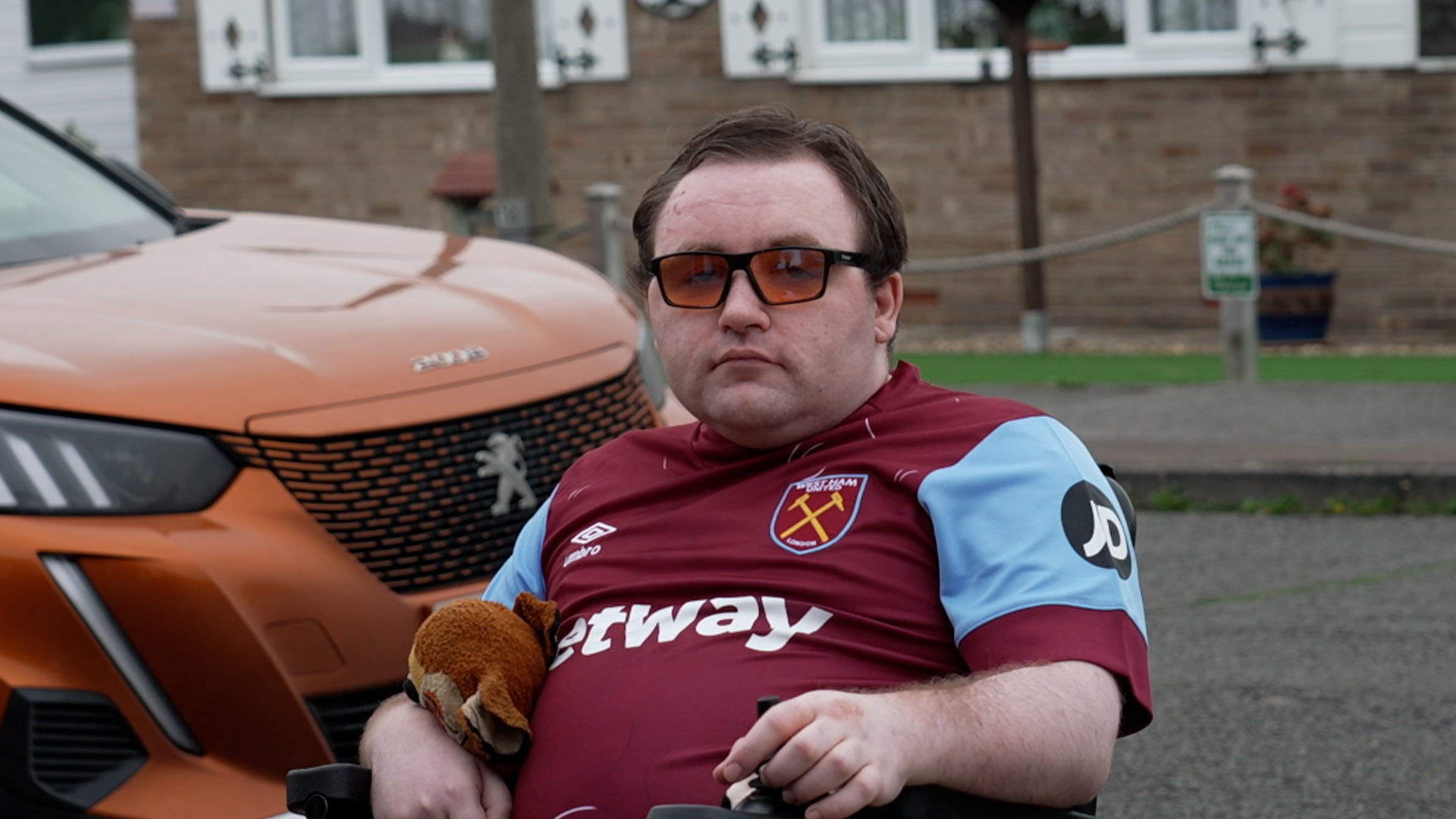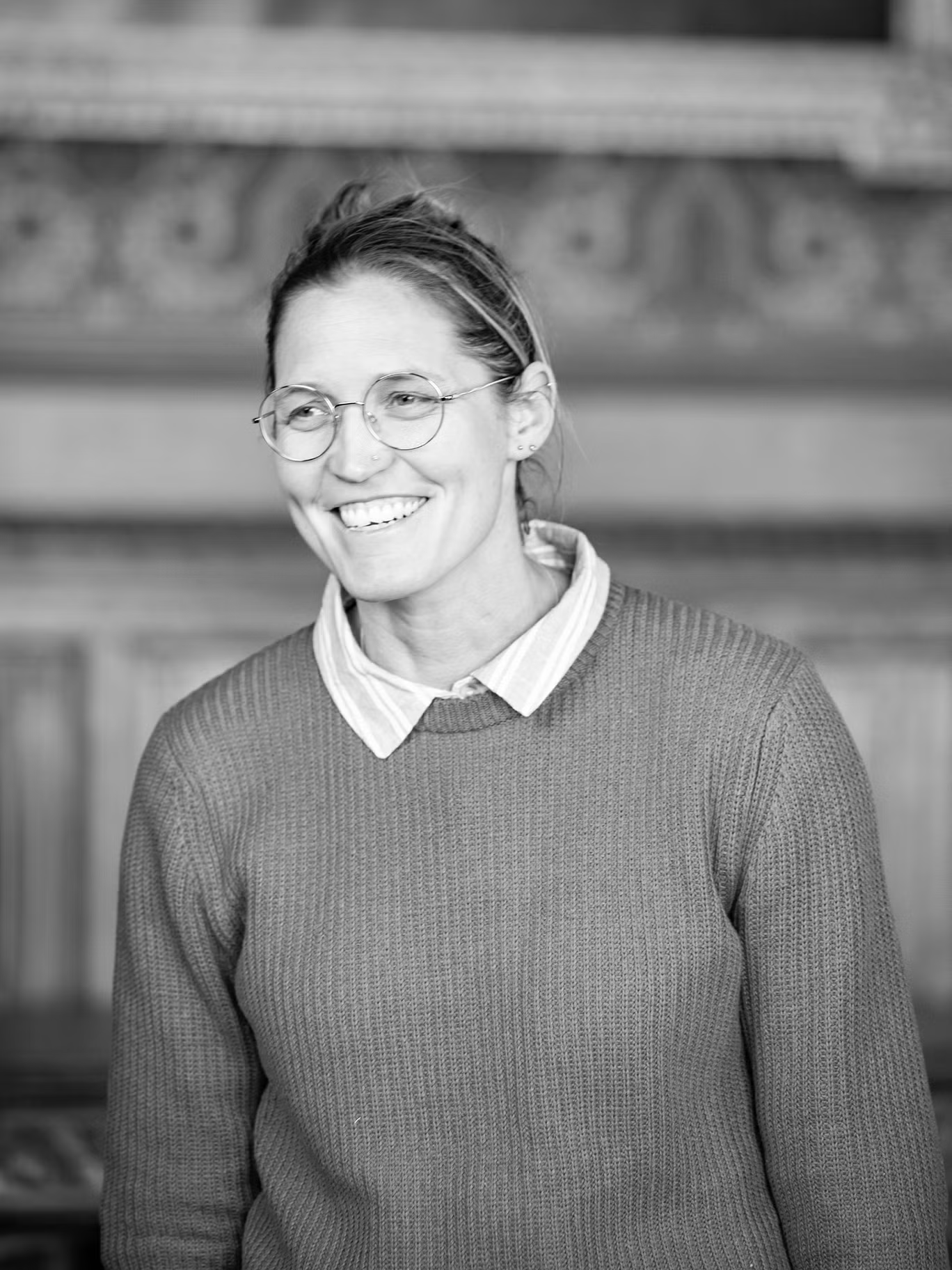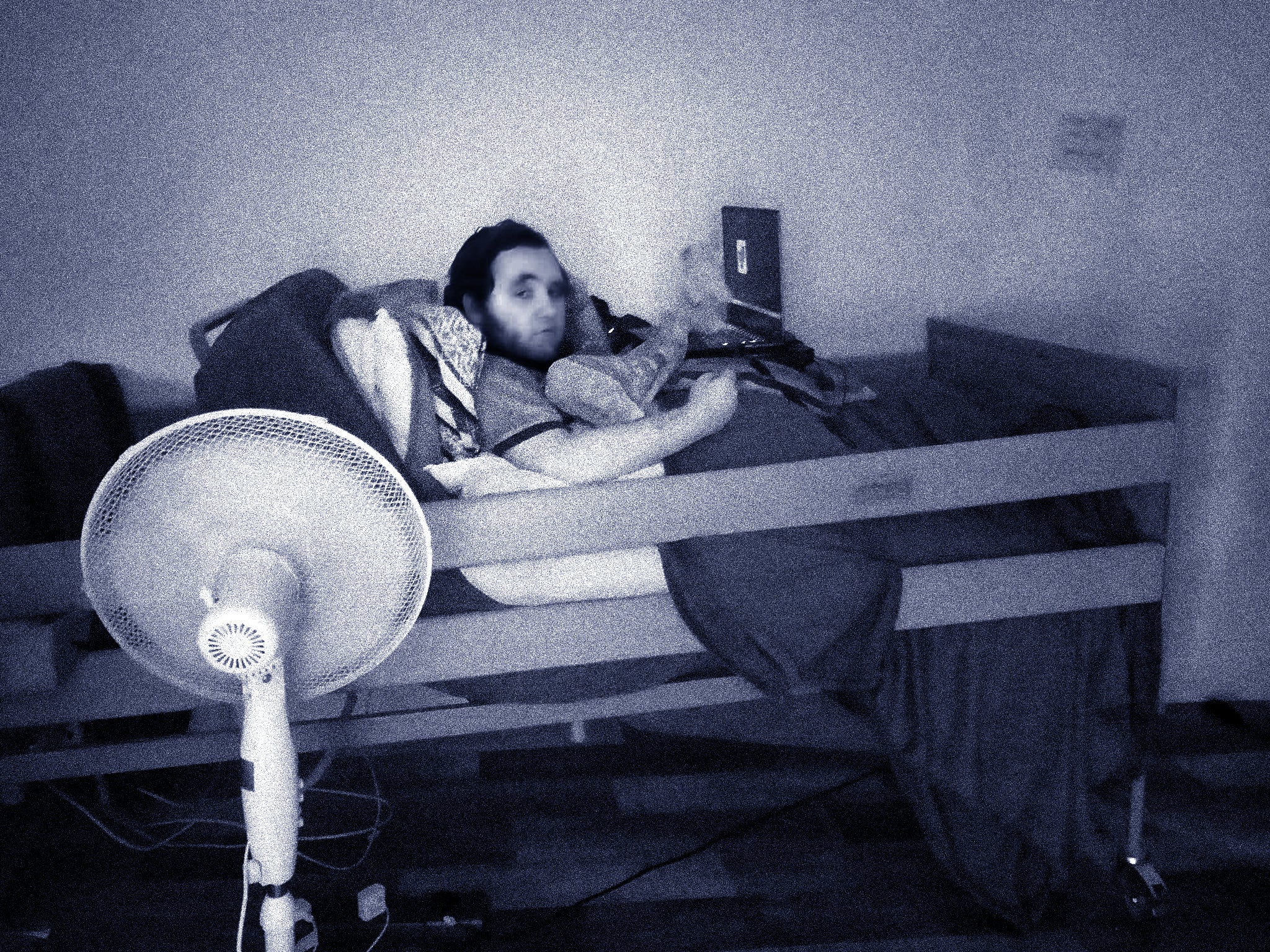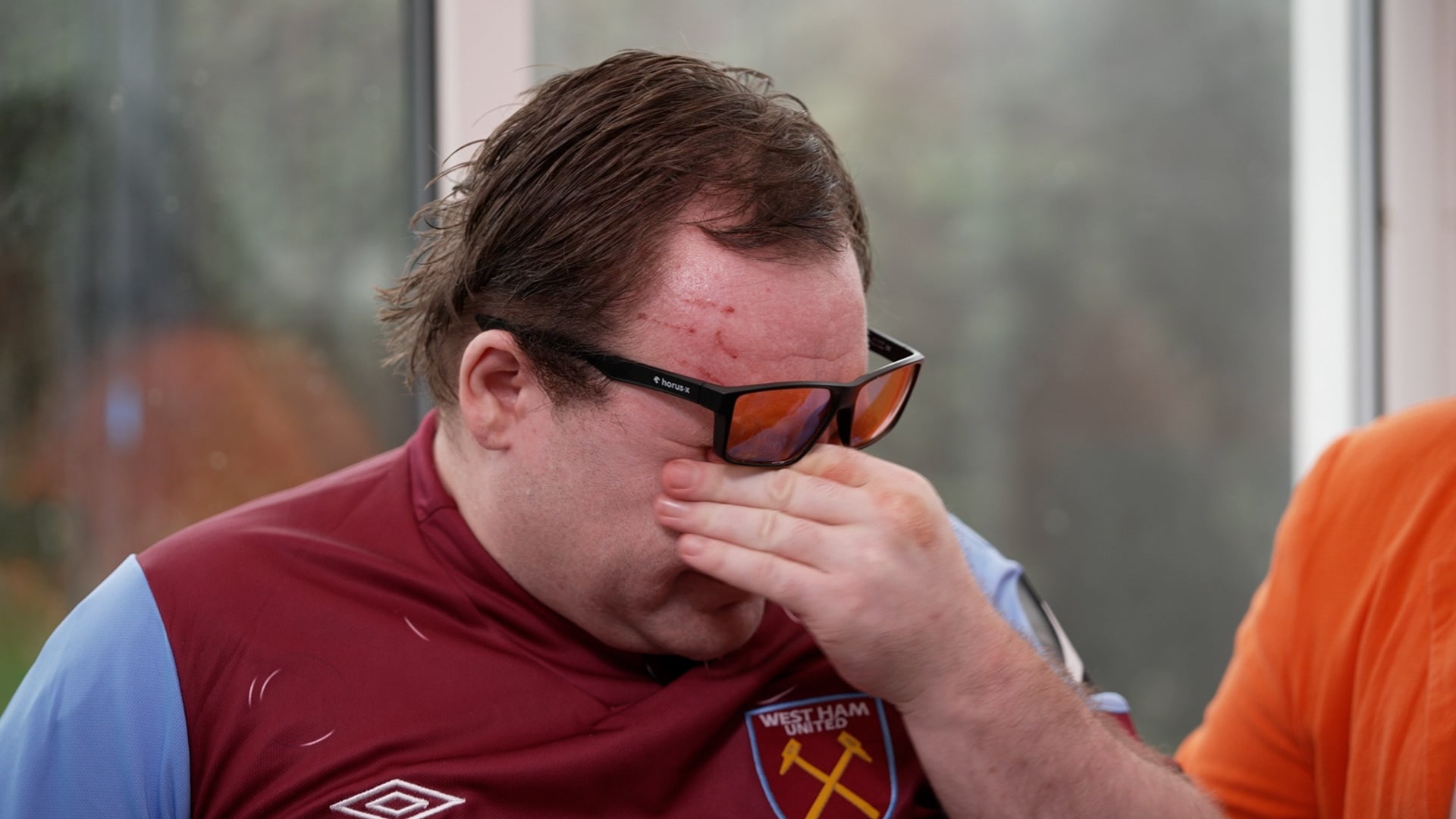He was trapped in hospitals for a decade because he’s autistic – now Nicholas is finally free
Special Report: For more than 10 years, Nicholas Thornton was detained in dementia care homes, psychiatric units and A&E wards because he couldn’t get the help he needed for his autism. It took a huge toll on his health, leaving the 29-year-old unable to speak. Now, one year after The Independent told his story, Nicholas is in his own home – and even able to talk again. Rebecca Thomas reports
Your support helps us to tell the story
From reproductive rights to climate change to Big Tech, The Independent is on the ground when the story is developing. Whether it's investigating the financials of Elon Musk's pro-Trump PAC or producing our latest documentary, 'The A Word', which shines a light on the American women fighting for reproductive rights, we know how important it is to parse out the facts from the messaging.
At such a critical moment in US history, we need reporters on the ground. Your donation allows us to keep sending journalists to speak to both sides of the story.
The Independent is trusted by Americans across the entire political spectrum. And unlike many other quality news outlets, we choose not to lock Americans out of our reporting and analysis with paywalls. We believe quality journalism should be available to everyone, paid for by those who can afford it.
Your support makes all the difference.Just one year ago, Nicholas Thornton lay in a windowless hospital room, in a bed he could not leave on his own, unable to speak.
He had spent 10 years like this, in hospital wards – as well as in unsuitable dementia care homes and psychiatric units – all because he had learning disabilities and autism.
Nicholas was finally able to tell his story to The Independent and Channel 4 News, communicating through a laptop to reveal how he had been repeatedly failed by the care system.
Now, 12 months on, he is finally free at the age of 29 – and in a home of his own.
His incredible transformation since leaving Rochard Hospital, in Essex, means he is now able to leave his house unassisted and has even regained his speech.
“It’s like I have my life back, I have my freedom back... for so long I was just stuck in the hospital. I have my freedom,” he said.
But while Nicholas reaps the benefits of his new life, there are more than 2,000 people just like him, stuck in hospitals across the country because there is no suitable care for them outside.
Hundreds have been trapped in hospital for more than five years, unable to be discharged into the community as local authorities struggle to come up with funding to meet their needs – and some have become so deeply institutionalised that their needs are now extremely complex.
Ministers have introduced a new Mental Health Bill meaning patients with a learning disability and autism would only be sectioned under the Mental Health Act for a maximum of 28 days.
But the changes to the act are unlikely to have prevented what happened to Nicholas, who ended up in inappropriate settings primarily because of a breakdown in care packages.

According to recent NHS data, the most common reason, 23 per cent, for patients’ delayed discharge is the wait for supported accommodation, 12 per cent for a care home placement and 5 per cent for a funding decision.
Campaigners have warned the government that it can change the Mental Health Act, but without adequate funding for social and community mental health care people will still end up in places they should not be.
Julie Newcombe, from the group Rightful Lives which represents hundreds of people with learning disabilities and autism, told The Independent: “For every one of Nicholas there are a dozen more people who are prisoners in their own homes without the proper care [packages] they need.”
Alexis Quinn, from the same group, who has autism was previously sectioned under the Mental Health Act herself, pointed out that the changes to the Mental Health Act will also remove the rights of people with learning disabilities and autism to fully funded care in the community.

This is a right of all those detained under Section Three of the act. However, Labour’s changes will remove the use of Section Three for those with learning difficulties and autism.
Quinn said: “It is already difficult to get out of hospital due to the lack of community support. Eliminating access to 117 will mean that the 2,000 people who are currently stuck in the same position Nicholas was in will suffer even greater barriers to getting out of the hospital because there will be no pot to purchase the bespoke packages of care needed.”
Dragging myself on the floor
The windowless rooms in mental health units were so overstimulating to Nicholas that he lost complete use of his voice, relying only on a tablet or computer to communicate with others when The Independent met him.
His sister, mother and brother, who have been his advocates for years were also his voice, fighting NHS commissioners and local authorities to give Nicholas the care he needed at home.

The years of being in care homes, A&E and general hospital wards which neglected his physical needs meant he was reliant on a wheelchair, only able to use one hand and unable to leave bed without assistance.
He said: “My mobility got worse and worse over time because I didn’t have the physio I needed… we were all pretty much begging for the physiotherapy, but I was just left in bed for most of the 10 years.”
Even after Essex County Council agreed to fund his care package earlier this year, it took months to finally put it in place due to the complexity of what he needed and the costs.
However, Nicholas now has a suitable care package with carers such as Hayley Kitchener, from My Life Choices, helping with his day-to-day activities.
‘I could see the moon and stars’
After 10 years, Nicholas now has the freedom to move about his own home as he chooses.
“This is the first actually suitable place I’ve had. I should never have been in the mental health hospital, a dementia home or a drug and alcohol home,” he said.
Carer, Hayley, sitting next to Nicholas, recalled the moment he finally got his voice back, while in the car running an errand together. In the few months since getting out Nicholas had been able to transform his life.
“He is just so different, he’s talking and even the way that [he] manages [his] own emotions,” she reflected.
In his first few weeks back, Nicholas took himself to the pub and had a Guinness, he revealed with a smile on his face.

Today, on the cusp of his 30th birthday, Nicholas sat in his West Ham jersey dreaming of the future, hoping to begin studying for an e-sports degree.
He said: “I’m going to be doing awesome. I want to be going to college. One of my friends is a personal trainer, and I’ve been doing this with him because I want to try and get some strength back.
“I want to go to Disneyland... I’d like to have a dog.”
Happy in his two-bedroom house, and with carers with whom he is building trust, Nicholas can explore the life he missed out on.
“I’ve been able to actually go outside and do things like people should… I went out there at two in the morning, I could actually look at the stars and the moon, because I haven’t been able to see that for years,” he said.

Join our commenting forum
Join thought-provoking conversations, follow other Independent readers and see their replies
Comments